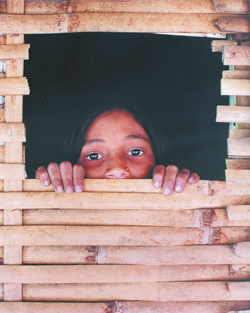|
|
Probably not all refugees are going to want to be resettled. We'd start on a camp-by-camp basis. As I have assured the government of Nepal, we would not want to take the cream of the crop. We would take whoever comes forward and is interested in resettlement in the United States.
What if all come forward?
We would anticipate that a lot would be interested. We would look to the government of Nepal to give us direction . and this is all predicated on the Nepal government deciding they want to use resettlement. There are three durable solutions for a protracted refugee situation: repatriation, integration into the host country, or resettlement. It has been nearly 20 years and neither repatriation nor reintegration is seeming to happen.
You don't yet have the Nepal government's support for third-country resettlement.
The government of Nepal has not given a concrete answer, but we are pleased it has allowed the UNHCR to conduct a census (in the refugee camps), to begin in the next few weeks.
Some refugee leaders say resettlement will give a clean chit to Thimpu, letting it get away what has been alleged as the eviction of one-fifth of its population?
Frankly, the issue to us is not who is to blame, it's not absolving people of the past. It is addressing a reality, and the reality of the situation is that these people have no lives, no hope, no future. They are stuck. We have been trying to negotiate for the two countries to reach an agreement between themselves, meanwhile these people are stagnating, their lives are on hold.
Did you tell the press in Geneva that Canada and Australia are also prepared to resettle 20 percent of the Bhutani refugees?
No, no, I did not. What I did say was that there are other countries interested in being a part of the solution. I mentioned that in terms of the overall resettlement programs worldwide, the United States would take about 60 percent of the whole world refugees. Canada and Australia have taken about another 20 percent. So between our three countries we resettle about 80 percent of the world refugees.



